
Akureyri: The Heart of North Iceland
Akureyri, often dubbed the 'Capital of North Iceland,' is a charming and picturesque town nestled at the base of Eyjafjörður Fjord. It is the second-largest urban area in Iceland and boasts a vibrant cultural scene, stunning natural landscapes, and a rich history. Despite its small size, Akureyri offers a variety of activities and attractions that cater to all kinds of travelers. Stroll through its quaint streets lined with colorful houses and you'll encounter an array of shops, cafes, and restaurants. The Akureyri Botanical Garden is a must-see, home to an impressive collection of both native and exotic plants. History buffs will appreciate the Akureyri Museum, which offers insights into the town's past and Icelandic heritage. Nature enthusiasts will find Akureyri to be a gateway to some of Iceland's most breathtaking sights. Just a short drive away, you can visit the awe-inspiring Goðafoss waterfall, the volcanic landscapes of Lake Mývatn, and the Húsavík Whale Watching capital. Winter visitors can enjoy skiing and snowboarding at the nearby Hlíðarfjall ski resort, while summer travelers can take advantage of the long daylight hours to explore the surrounding countryside and hiking trails. One of the unique aspects of Akureyri is its relatively mild climate compared to other parts of Iceland, thanks to the warm currents of the North Atlantic. This makes it a year-round destination with each season offering its own unique charm and activities. Akureyri’s friendly locals and relaxed atmosphere make it an inviting destination for tourists looking to experience the best of what North Iceland has to offer.
Local tips in Akureyri
- Visit the Akureyri Botanical Garden to see a variety of native and exotic plants.
- Don't miss Goðafoss waterfall, located just a short drive from Akureyri.
- Take a whale watching tour from Húsavík, known as the Whale Watching capital of Iceland.
- Explore the volcanic landscapes and geothermal areas of Lake Mývatn.
- In winter, enjoy skiing and snowboarding at Hlíðarfjall ski resort.
- Take advantage of the long summer daylight hours to explore the surrounding hiking trails.
- Visit the Akureyri Museum for a deep dive into the town's history and Icelandic heritage.
- Enjoy the relatively mild climate of Akureyri, which is warmer than other parts of Iceland.
Akureyri: The Heart of North Iceland
Akureyri, often dubbed the 'Capital of North Iceland,' is a charming and picturesque town nestled at the base of Eyjafjörður Fjord. It is the second-largest urban area in Iceland and boasts a vibrant cultural scene, stunning natural landscapes, and a rich history. Despite its small size, Akureyri offers a variety of activities and attractions that cater to all kinds of travelers. Stroll through its quaint streets lined with colorful houses and you'll encounter an array of shops, cafes, and restaurants. The Akureyri Botanical Garden is a must-see, home to an impressive collection of both native and exotic plants. History buffs will appreciate the Akureyri Museum, which offers insights into the town's past and Icelandic heritage. Nature enthusiasts will find Akureyri to be a gateway to some of Iceland's most breathtaking sights. Just a short drive away, you can visit the awe-inspiring Goðafoss waterfall, the volcanic landscapes of Lake Mývatn, and the Húsavík Whale Watching capital. Winter visitors can enjoy skiing and snowboarding at the nearby Hlíðarfjall ski resort, while summer travelers can take advantage of the long daylight hours to explore the surrounding countryside and hiking trails. One of the unique aspects of Akureyri is its relatively mild climate compared to other parts of Iceland, thanks to the warm currents of the North Atlantic. This makes it a year-round destination with each season offering its own unique charm and activities. Akureyri’s friendly locals and relaxed atmosphere make it an inviting destination for tourists looking to experience the best of what North Iceland has to offer.
When is the best time to go to Akureyri?
Iconic landmarks you can’t miss
Akureyri Botanical Garden
Explore the enchanting Akureyri Botanical Garden, a serene oasis featuring diverse flora in breathtaking natural surroundings.
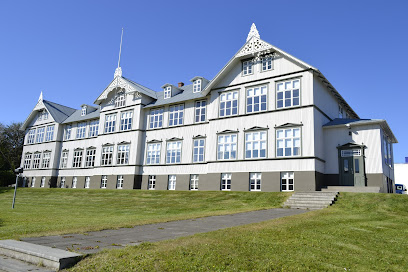
Akureyri Backpackers
Experience the warmth of Icelandic hospitality at Akureyri Backpackers, your ultimate base for exploring the beauty of North Iceland.

Akureyrarkirkja
Explore the cultural and architectural gem of Akureyrarkirkja, a stunning Lutheran church offering breathtaking views and a glimpse into Iceland's rich heritage.
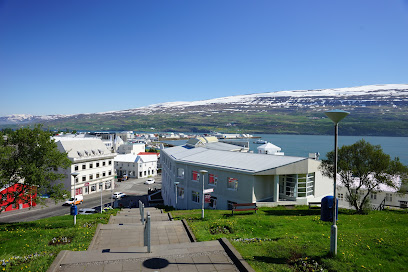
Bautinn Restaurant
Experience the best of Icelandic cuisine at Bautinn Restaurant in Akureyri, where fresh local ingredients meet delightful flavors in a cozy atmosphere.
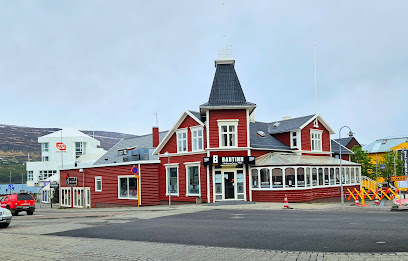
Christmas House
Experience the magic of Christmas year-round at the Christmas House in Akureyri, Iceland, with unique gifts and festive cheer for all ages.
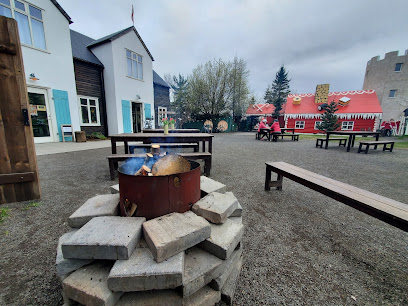
Strikið
Experience the best of Icelandic cuisine at Strikið, a gastropub with stunning views and a creative menu in Akureyri.
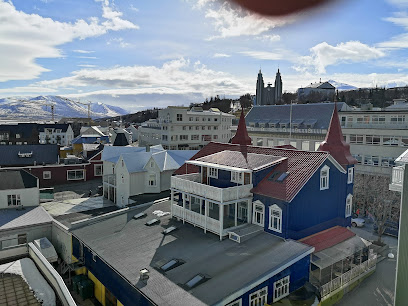
Kaffi Ilmur
Discover the cozy charm of Kaffi Ilmur in Akureyri, where delicious pastries and coffee await in a warm, inviting atmosphere.
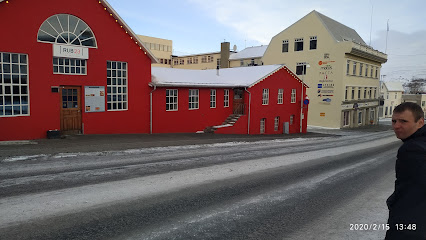
Forest Lagoon
Discover unparalleled relaxation at Forest Lagoon, Akureyri's premier thermal baths, where nature and tranquility come together beautifully.
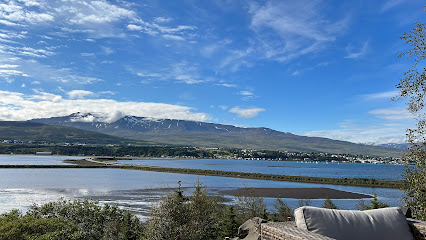
Hótel Kea by Keahotels
Discover the perfect blend of comfort, culture, and breathtaking landscapes at Hôtel Kea in Akureyri, Iceland's northern gem.
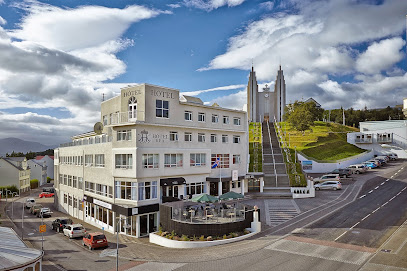
Akureyri Swimming Pool
Discover the healing waters of Akureyri Swimming Pool, a perfect blend of relaxation and local culture amidst stunning Icelandic landscapes.
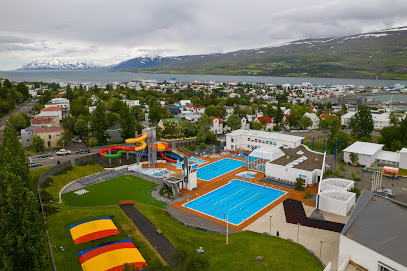
Hof Cultural and Conference Centre
Explore the Hof Cultural and Conference Centre in Akureyri, Iceland - a hub of arts, culture, and community with breathtaking architecture.
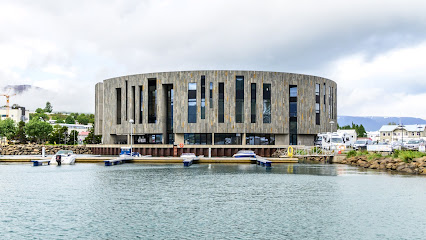
Greifinn
Discover the essence of Icelandic cuisine at Greifinn, Akureyri's inviting restaurant serving fresh local dishes in a charming atmosphere.
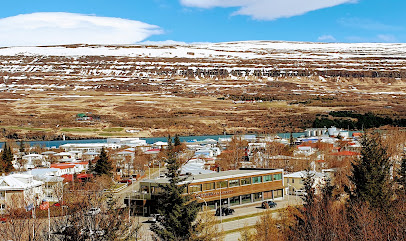
Cafe Berlin
Discover authentic German cuisine in the heart of Akureyri at Cafe Berlin, where every dish promises a taste of tradition and comfort.
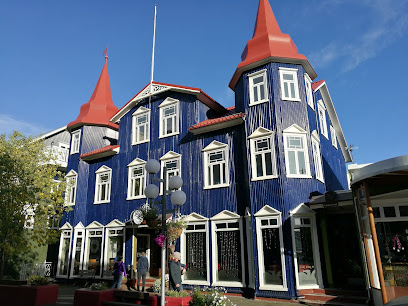
Rub23
Discover the best of Icelandic cuisine at Rub23, where exceptional meat and sushi dishes await in Akureyri's vibrant dining scene.
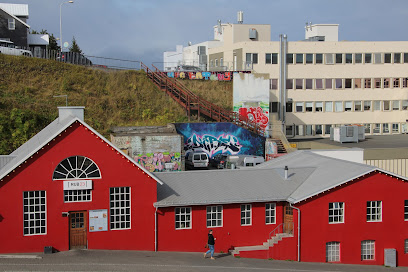
Pylsuvagninn á Akureyri
Experience the iconic taste of Iceland at Pylsuvagninn, Akureyri's beloved hot dog stand, serving delicious street food in a vibrant atmosphere.
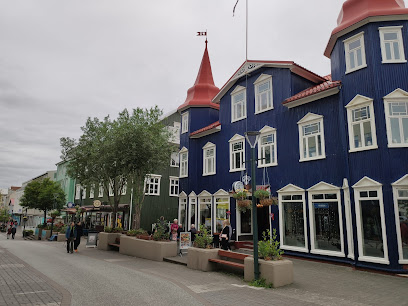
Unmissable attractions to see
Goðafoss
Experience the breathtaking beauty of Goðafoss, one of Iceland's most stunning waterfalls, rich in history and surrounded by breathtaking landscapes.
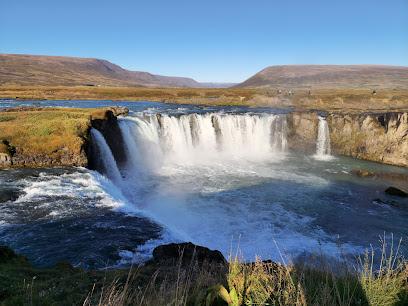
Akureyri Botanical Garden
Discover the enchanting Akureyri Botanical Garden, a vibrant haven of flora in Iceland, perfect for nature lovers and tranquility seekers.
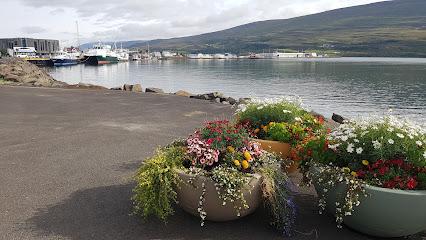
Elding Whale Watching Akureyri
Discover the thrill of whale watching in Akureyri with Elding Whale Watching, where adventure meets the awe of Iceland’s marine life.
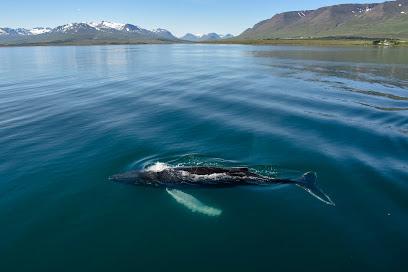
Akureyrarkirkja
Discover the architectural beauty and cultural significance of Akureyrarkirkja, Akureyri's iconic Lutheran church with breathtaking views.
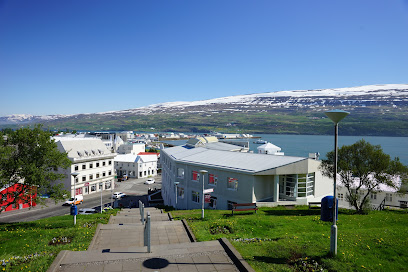
Forest Lagoon
Discover tranquility at Forest Lagoon, Akureyri’s thermal baths, where nature meets relaxation in a stunning Icelandic landscape.
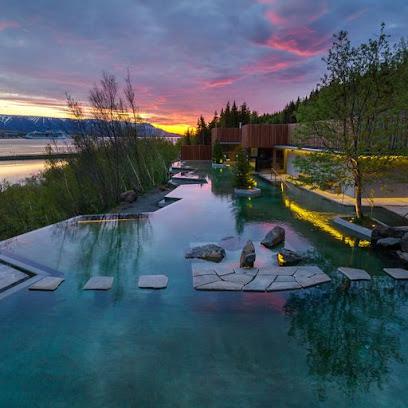
Christmas House
Immerse yourself in the festive spirit at the Christmas House in Akureyri, a gift shop filled with unique treasures and holiday cheer all year round.
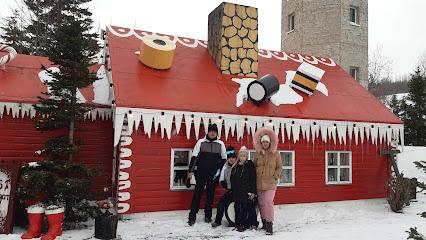
Hof Cultural and Conference Centre
Experience the vibrant cultural scene at Hof Cultural and Conference Centre in Akureyri, Iceland, where art, music, and community come together.
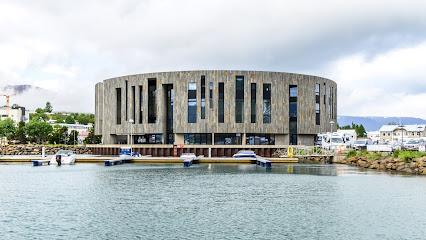
nand nand n Laufás Museum and heritage siteS
Explore the captivating Laufás Museum in Iceland, a heritage site that showcases the rich history and culture of the Icelandic people.
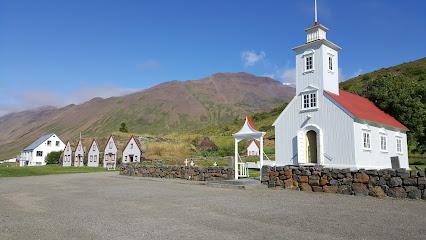
Akureyri Museum
Explore the rich history and culture of Iceland at the Akureyri Museum, showcasing fascinating artifacts and maps in a charming setting.
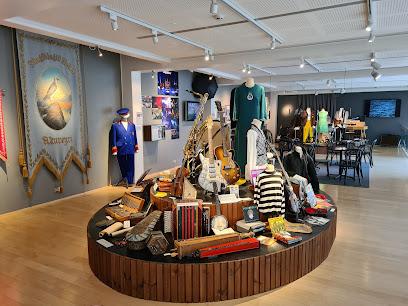
Eyjafjörður
Experience the breathtaking beauty of Eyjafjörður, Iceland's longest fjord, where adventure and tranquility meet in a stunning natural landscape.
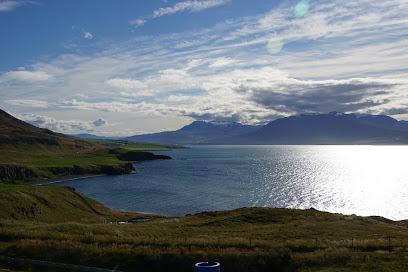
Akureyri Art Museum
Explore contemporary and classical artworks at Akureyri Art Museum, a cultural gem in Iceland's northern capital that captivates art lovers.
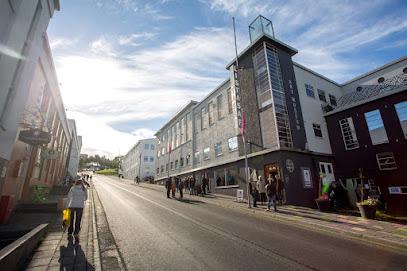
Grenjaðarstaður - the Old Turfhouse
Explore the fascinating history and unique architecture of Grenjaðastaður, the Old Turfhouse museum in Húsavík, Iceland.
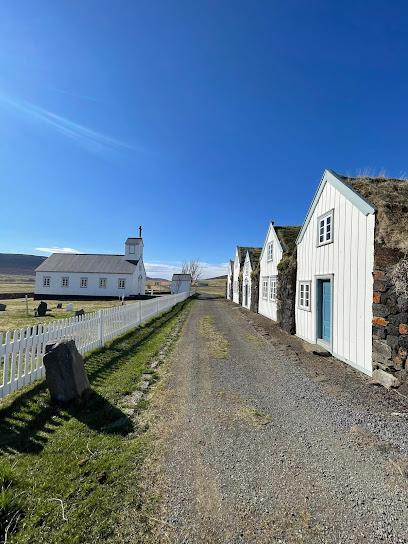
Iðnaðarsafnið á Akureyri
Explore Iceland's industrial heritage at Iðnaðarsafnið in Akureyri, where history and craftsmanship come alive through engaging exhibits and artifacts.
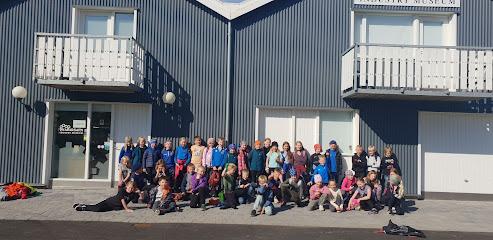
Gosbrunnur
Discover the tranquil beauty of Gosbrunnur, a picturesque fountain nestled in Akureyri, perfect for relaxation and stunning photographs.
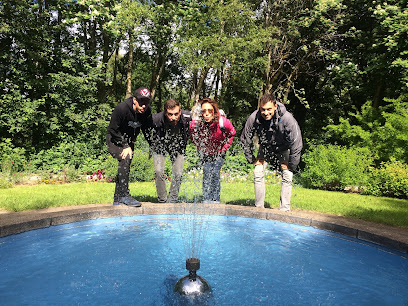
Fairytale figures
Explore the Fairytale Figures in Akureyri, where Icelandic folklore comes to life through enchanting sculptures and captivating stories.
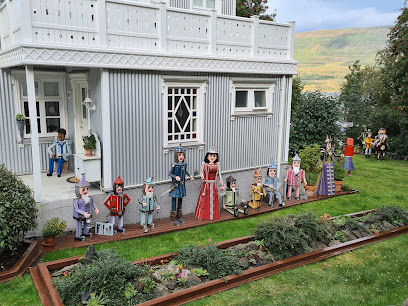
Essential places to dine
Akureyri Backpackers
Experience the charm of Akureyri at Akureyri Backpackers - where adventure meets comfort in Iceland's northern capital.

Bautinn Restaurant
Discover the flavors of Iceland at Bautinn Restaurant in Akureyri - where local ingredients meet culinary excellence.
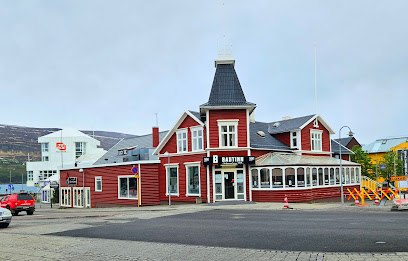
Akureyri Fish & Chips
Discover the fresh flavors of Iceland at Akureyri Fish & Chips - where quality meets tradition in every bite.
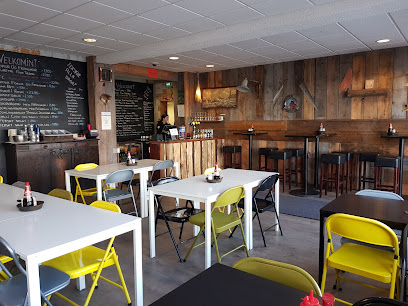
Strikið
Discover Strikið in Akureyri: where Scandinavian flavors meet modern gastronomy amidst breathtaking views.
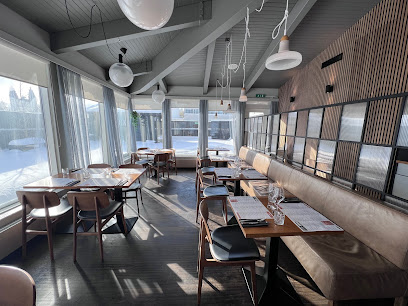
Kaffi Ilmur
Discover Kaffi Ilmur in Akureyri: A delightful café-restaurant offering local Icelandic flavors and warm hospitality in a cozy setting.
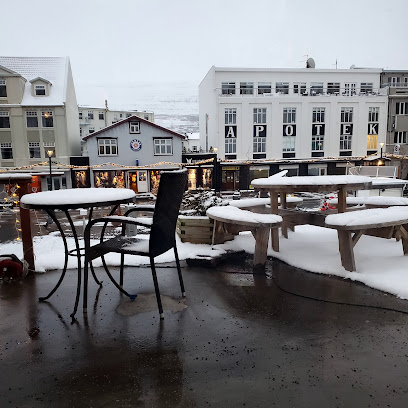
Hótel Kea by Keahotels
Experience the best of Icelandic cuisine at Hótel Kea in Akureyri – where comfort meets culinary excellence.
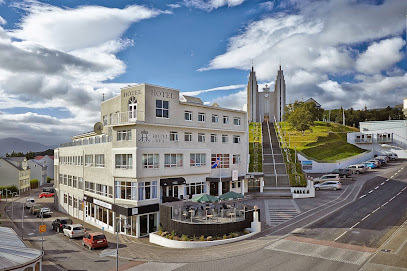
Greifinn
Experience authentic Icelandic cuisine at Greifinn in Akureyri, where local ingredients meet modern culinary flair in a cozy setting.
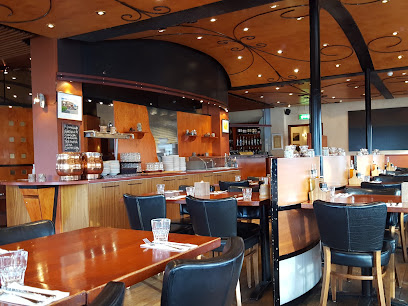
Shanghai Restaurant
Savor authentic Asian cuisine at Shanghai Restaurant in Akureyri - where flavors meet tradition.
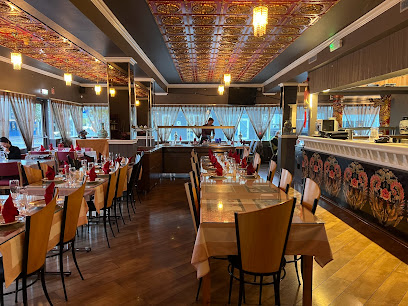
Cafe Berlin
Discover Café Berlin in Akureyri: A cozy restaurant serving local and international dishes with fresh ingredients in a welcoming atmosphere.
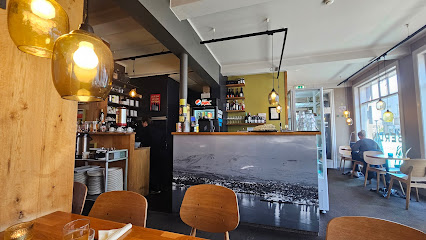
Rub23
Experience Iceland's culinary delights at Rub23, where innovative meat dishes meet exquisite sushi in Akureyri.
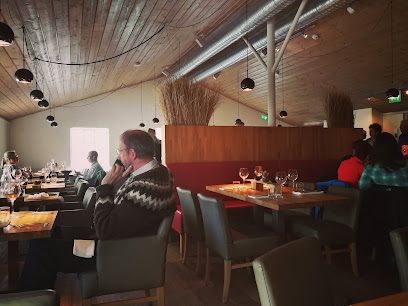
Ketilkaffi
Discover the cozy charm of Ketilkaffi in Akureyri – where delicious Icelandic flavors meet warm hospitality.
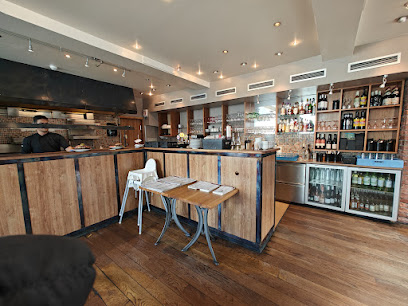
Centrum Kitchen & Bar
Experience diverse culinary delights at Centrum Kitchen & Bar in Akureyri—where fresh ingredients meet innovative cuisine.
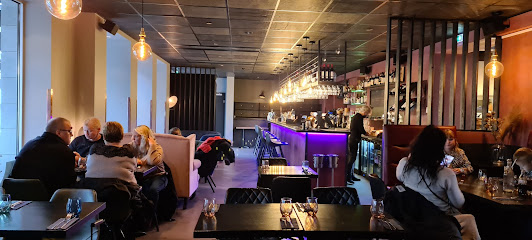
Pylsuvagninn á Akureyri
Discover the best hot dogs in Akureyri at Pylsuvagninn - A must-visit spot for food lovers exploring Iceland's northern charm.
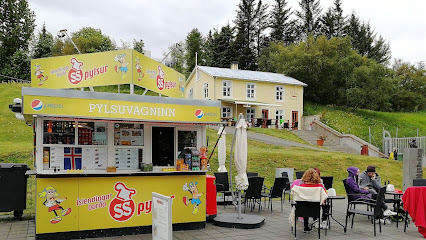
DJ Grill
Experience fast food delights at DJ Grill in Akureyri - where fresh ingredients meet flavorful dishes in an inviting atmosphere.
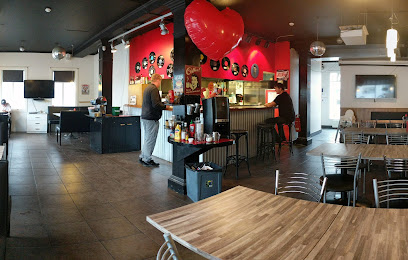
Krua Siam
Experience authentic Thai cuisine at Krua Siam in Akureyri - where every dish tells a story of tradition and flavor.
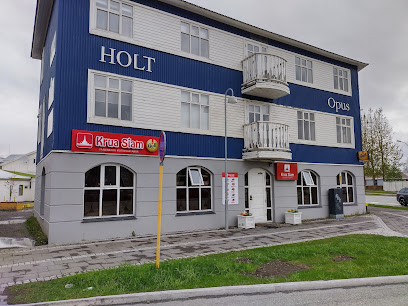
Markets, malls and hidden boutiques
Glerártorg
Discover unique Icelandic shopping and dining at Glerártorg, the vibrant shopping mall in the heart of Akureyri, perfect for tourists!
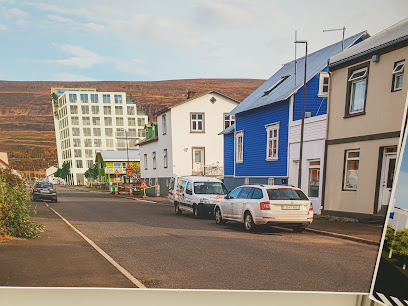
Penninn Eymundsson Akureyri
Explore the cultural gem of Akureyri - Penninn Eymundsson, your destination for unique gifts, books, and a cozy café experience.
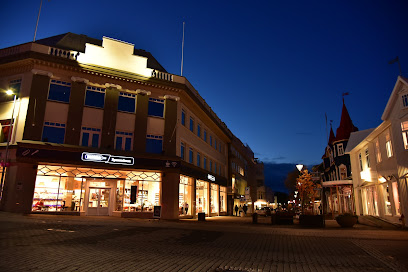
Kaupangur
Discover Kaupangur, Akureyri's vibrant shopping mall, blending local culture with international brands and delightful dining options.
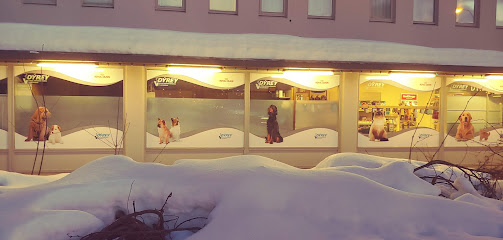
Extra verslun
Discover local flavors and international snacks at Extra Verslun in Akureyri, a must-visit grocery store for tourists exploring Iceland.

66°North
Discover premium outdoor clothing at 66°North, the go-to destination in Akureyri for high-quality Icelandic outerwear and adventure gear.
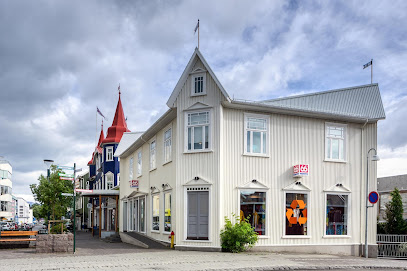
Icewear Akureyri
Discover Icelandic outdoor apparel at Icewear Akureyri, your go-to shop for high-quality clothing and gear tailored for adventures in nature.
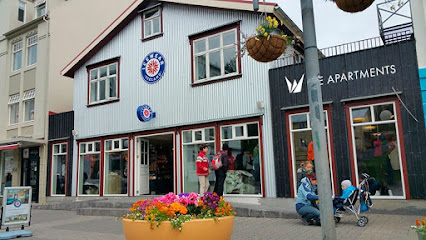
The Viking
Discover unique Icelandic souvenirs and essential travel information at The Viking in Akureyri, your one-stop shopping destination.
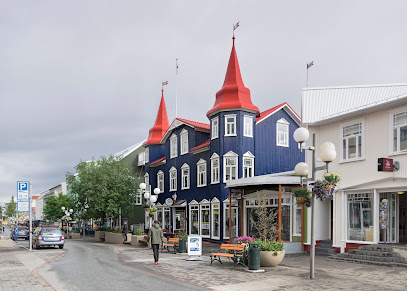
Fornbókabúðin Fróði
Discover a literary paradise at Fornbókabúðin Fróði in Akureyri, Iceland, offering a vast selection of used books in a cozy atmosphere.
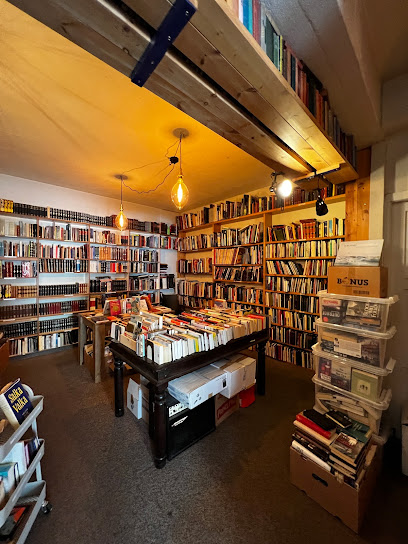
Hertex Hjálpræðisherinn
Explore Hertex Hjálpræðisherinn, a charming consignment shop in Akureyri, for unique treasures and authentic Icelandic finds.
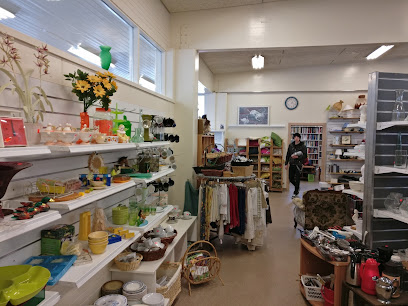
Casa
Explore Casa Gift Shop in Akureyri for unique Icelandic souvenirs, handcrafted treasures, and local delicacies that capture the spirit of Iceland.
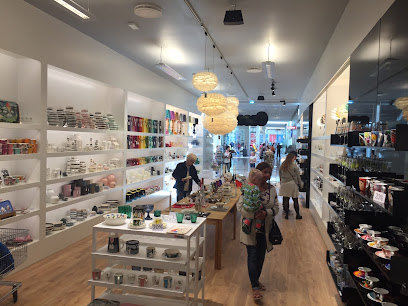
JYSK
Explore JYSK in Akureyri for stylish home goods and decor that bring Scandinavian elegance to your living space.
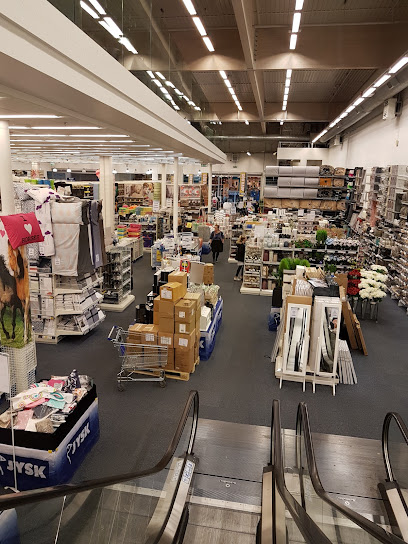
Rauði krossinn verslun Akureyri
Explore Rauði Krossinn Thrift Store in Akureyri for unique finds and sustainable shopping while supporting local humanitarian efforts.

Ellingsen
Ellingsen: Your go-to outdoor sports store in Akureyri, Iceland, offering top-quality gear for every adventure seeker.
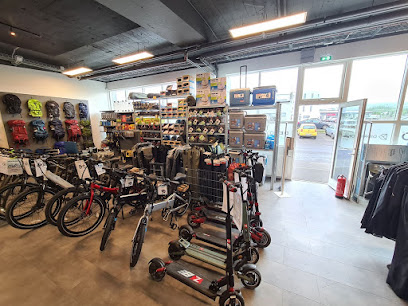
Sunnuhlíð verslunarmiðstöð
Discover the vibrant shopping experience at Sunnuhlíð Shopping Mall in Akureyri, where local culture meets modern retail.
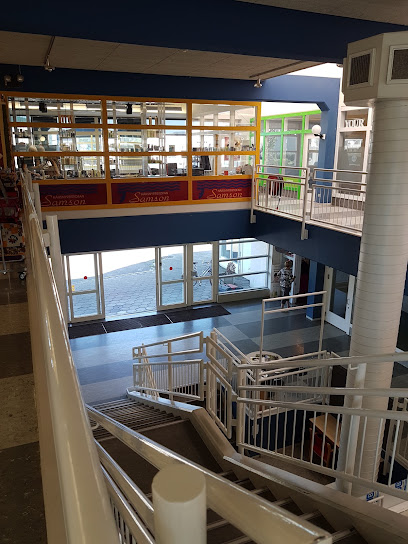
Fold Anna
Explore Fold Anna in Akureyri for unique Icelandic fashion, handcrafted quality, and a delightful shopping experience that reflects local culture.
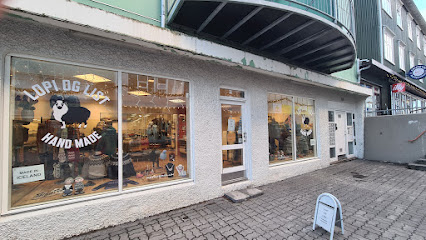
Essential bars & hidden hideouts
Bautinn Restaurant
Discover the essence of Icelandic cuisine at Bautinn Restaurant in Akureyri, where local flavors meet breathtaking views in a cozy atmosphere.
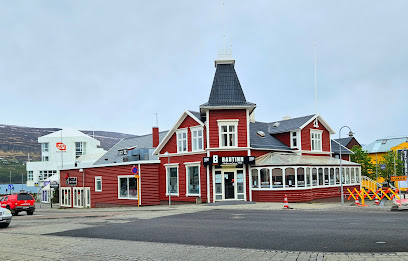
Akureyri Fish & Chips
Experience the authentic taste of Iceland with fresh, locally sourced fish and chips in the heart of Akureyri.
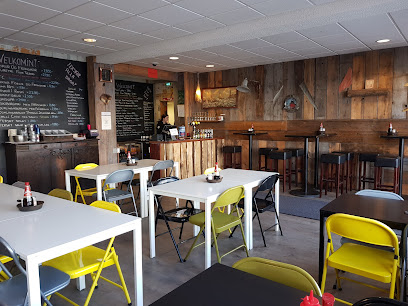
Strikið
Experience the exquisite flavors of Iceland at Strikið, a top gastropub in Akureyri with stunning views and a delightful menu.
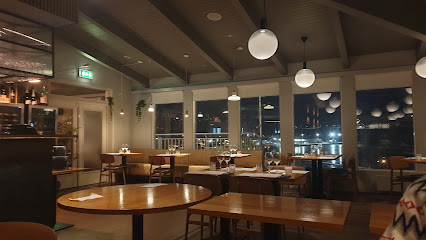
Kaffi Ilmur
Discover the flavors of Akureyri at Kaffi Ilmur, a cozy café and restaurant offering delightful dishes and warm ambiance in Iceland's charming city.
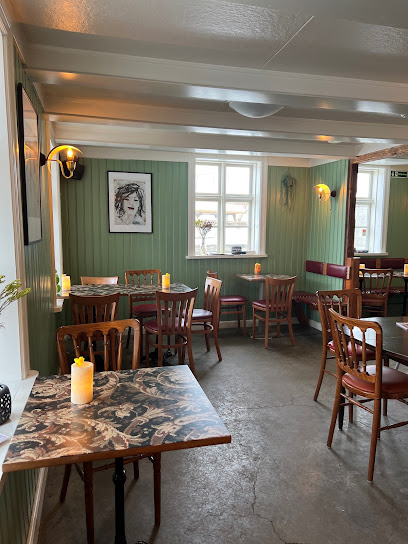
Greifinn
Experience the rich flavors of Iceland at Greifinn, a top dining destination in Akureyri, offering exquisite local and international cuisine.
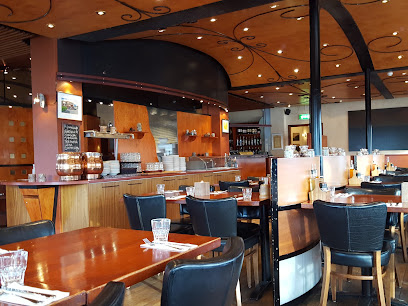
Cafe Berlin
Experience the unique blend of German and Icelandic flavors at Cafe Berlin in Akureyri, where every meal is a delightful culinary journey.
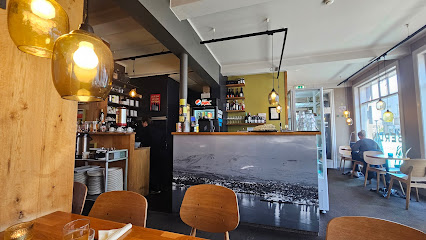
Rub23
Experience the best of Icelandic cuisine at Rub23, featuring exceptional meat and sushi dishes in a cozy atmosphere in Akureyri.
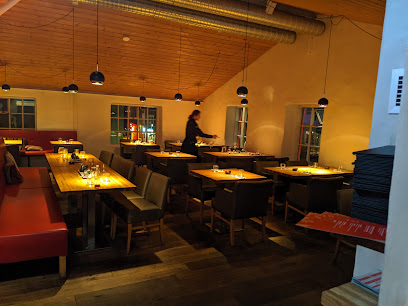
Ketilkaffi
Discover the cozy essence of Akureyri at Ketilkaffi, where delightful dishes meet local charm in a picturesque café setting.
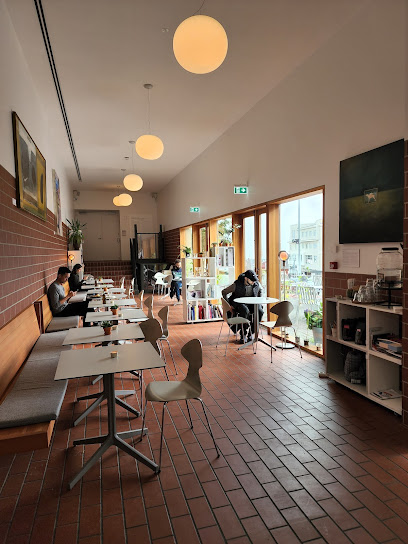
Centrum Kitchen & Bar
Discover the culinary magic at Centrum Kitchen & Bar, where local flavors meet modern dining in the heart of Akureyri, Iceland.
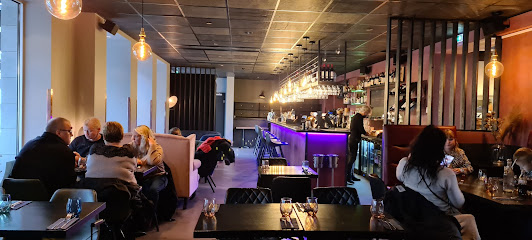
DJ Grill
Experience the best of fast food at DJ Grill in Akureyri, where delicious flavors meet affordability in a vibrant atmosphere.
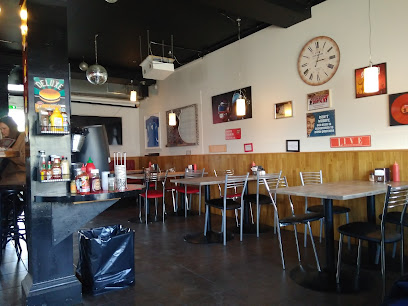
R5 Micro Bar
Experience the vibrant nightlife at R5 Micro Bar in Akureyri, where great drinks and local culture come together in a cozy atmosphere.
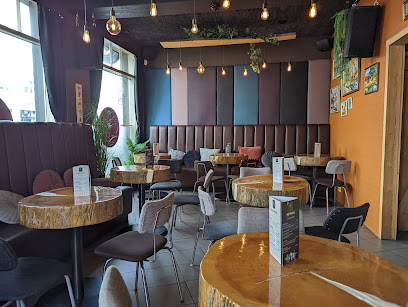
Mulaberg Bistro & Bar
Discover the unique flavors of Iceland at Mulaberg Bistro & Bar, a delightful dining experience in the heart of Akureyri.
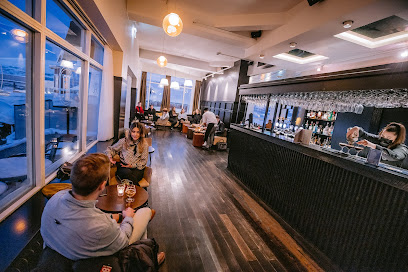
LYST
Explore LYST in Akureyri: Your Ultimate Destination for Coffee, Wine, and a Cozy Atmosphere.
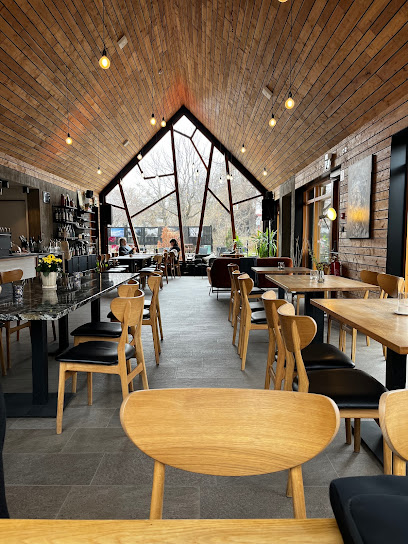
Ölstofa Akureyrar - Local Beer
Discover the heart of Icelandic brewing at Ölstofa Akureyrar, a cozy pub in Akureyri offering a variety of local beers and live entertainment.
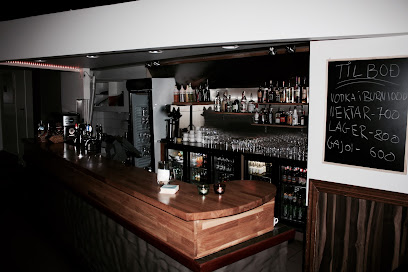
Local Phrases
-
- HelloHalló
[HA-loh] - GoodbyeBless
[bless] - YesJá
[yow] - NoNei
[nay] - Please/You're welcomeGjörðu svo vel
[gyor-thu s-voh vel] - Thank youTakk fyrir
[tahk feer-ir] - Excuse me/SorryFyrirgefðu
[feer-ir-gef-thu] - How are you?Hvernig hefur þú það?
[kver-nig heh-ur thyoo thyah] - Fine. And you?Í lagi. En þú?
[ee lah-gee. en thyoo] - Do you speak English?Talar þú ensku?
[tah-lar thyoo ens-koo] - I don't understandÉg skil ekki
[yeh skil ek-ki]
- HelloHalló
-
- I'd like to see the menu, pleaseÉg ætla að sjá matsedilinn, takk
[yeh eye-tla ath shau mat-sed-e-lin takk] - I don't eat meatÉg borða ekki kjöt
[yeh bor-tha ek-ki chot] - Cheers!Skál!
[skowl] - I would like to pay, pleaseMig langar að borga, takk
[mig lang-ar ath bor-ga takk]
- I'd like to see the menu, pleaseÉg ætla að sjá matsedilinn, takk
-
- Help!Hjálp!
[hyowlp] - Go away!Farðu í burtu!
[far-thu ee bur-too] - Call the Police!Hringdu í lögregluna!
[hring-thu ee loh-gre-gluna] - Call a doctor!Hringdu í lækninn!
[hring-thu ee liek-nin] - I'm lostÉg er týndur
[yeh er tithn-thur] - I'm illÉg er veikur
[yeh er vei-kur]
- Help!Hjálp!
-
- I'd like to buy...Ég ætla að kaupa...
[yeh eye-tla ath cow-pa] - I'm just lookingÉg er bara að skoða
[yeh er bar-a ath skoth-a] - How much is it?Hvað kostar það?
[kvath kost-ar thyah] - That's too expensiveÞað er of kostlegt
[thyah er of kohst-leght] - Can you lower the price?Geturðu lækkað verðið?
[geth-thur lye-kath ver-thith]
- I'd like to buy...Ég ætla að kaupa...
-
- What time is it?Hvað er klukkan?
[kvath er klu-kkan] - It's one o'clockKlukkan er eitt
[klu-kkan er ayt] - Half past (10)Hálft á (10)
[hawlf-t au (10)] - MorningMorgunn
[mor-gunn] - AfternoonEftir hádegismat
[ef-thir hau-deh-gis-mat] - EveningKvöld
[kvohld] - YesterdayÍ gær
[ee gair] - TodayÍ dag
[ee dahg] - TomorrowÁ morgun
[au mor-gun] - 1Eitt
[ayt] - 2Tvö
[tvo] - 3Þrír
[threer] - 4Fjórir
[fyoh-reer] - 5Fimm
[fim] - 6Sex
[sehx] - 7Sjö
[syoh] - 8Átta
[auh-ta] - 9Níu
[nee-uh] - 10Tíu
[tee-uh]
- What time is it?Hvað er klukkan?
-
- Where's a/the...?Hvar er...
[kvar er] - What's the address?Hvað er heimilisfangið?
[kvath er heim-il-is-fang-ith] - Can you show me (on the map)?Geturðu sýnt mér (á kortinu)?
[geth-thur soont mair (au kohr-tinu)] - When's the next (bus)?Hvenær kemur næsti (strætisvagn)?
[kver-nair keh-mur nais-ti (strait-is-vagn)] - A ticket (to ....)Miða (til ....)
[mee-tha (til)]
- Where's a/the...?Hvar er...
History of Akureyri
-
Akureyri, often referred to as the 'Capital of North Iceland,' traces its origins back to the 9th century when Norse settlers first arrived in the region. The area around Akureyri provided fertile land and a strategic location for fishing and farming, which attracted early settlers. The town itself was officially founded in 1786, marking the beginning of its development as a significant settlement.
-
During the 19th century, Akureyri grew under Danish rule, which brought about significant economic and infrastructural developments. The town became a vital trading post, benefiting from its harbor and its position on Eyjafjörður fjord. Danish merchants and officials played a crucial role in shaping the town's architecture and urban planning, leaving a lasting legacy on Akureyri's cultural landscape.
-
The early 20th century marked a period of industrial growth for Akureyri. The establishment of various industries, including fisheries, agriculture, and manufacturing, led to increased economic prosperity and population growth. Key institutions such as the Akureyri Cooperative Society and the Akureyri Technical School were founded during this time, contributing to the town's development as a regional hub of education and industry.
-
World War II had a significant impact on Akureyri. The town served as a base for Allied forces, particularly the British and American military, who were stationed there to protect the North Atlantic shipping routes. This period brought about rapid construction and modernization, including the development of infrastructure such as airfields and roads, which continued to benefit Akureyri long after the war ended.
-
In the latter half of the 20th century, Akureyri established itself as a cultural and educational center in Iceland. The University of Akureyri, founded in 1987, became a cornerstone of higher education in the region. The town also saw the growth of cultural institutions, such as the Akureyri Art Museum and Hof Cultural and Conference Center, which have played a significant role in promoting the arts and cultural heritage of Northern Iceland.
-
Today, Akureyri is a vibrant town known for its picturesque landscapes, thriving cultural scene, and dynamic community. It continues to be an important center for tourism, education, and industry in Iceland. The town's blend of historical charm and modern amenities makes it a unique destination for visitors looking to explore the rich history and culture of Northern Iceland.
Akureyri Essentials
-
Akureyri is located in northern Iceland and is accessible by various means of transportation. The nearest international airport is Keflavik International Airport, located near Reykjavik. From there, you can take a domestic flight to Akureyri Airport, which is just a few kilometers from the town center. Alternatively, you can drive from Reykjavik to Akureyri, a scenic journey that takes approximately 5-6 hours via Route 1 (the Ring Road). Buses also operate between Reykjavik and Akureyri, offering a cost-effective way to travel while enjoying the Icelandic landscapes.
-
Akureyri is a small town, making it easy to explore on foot. For longer distances, local buses and taxis are available. The public transportation system is reliable, with buses running regularly throughout the town and to nearby areas. Car rentals are also available for those who wish to explore the surrounding regions at their own pace. Biking is another popular option, with rental services available and numerous scenic bike paths around the town.
-
The official currency in Iceland is the Icelandic Krona (ISK). Credit and debit cards are widely accepted in Akureyri, including in hotels, restaurants, and shops. However, it's advisable to carry some cash for smaller establishments or in case of technical issues with card payments. ATMs are readily available throughout the town for cash withdrawals.
-
Akureyri is considered a very safe destination for tourists. Crime rates are low, and violent crime is rare. Standard safety precautions should still be observed, such as keeping an eye on personal belongings in crowded places and avoiding isolated areas at night. There are no specific neighborhoods in Akureyri known for high crime rates targeting tourists.
-
In case of emergency, dial 112 for immediate assistance, which covers police, fire, and medical emergencies. Akureyri has a local hospital with emergency services available. Pharmacies are also accessible for minor health issues and over-the-counter medications. It's recommended to have travel insurance that covers medical emergencies and other unforeseen situations.
-
Fashion: Do dress in layers to adapt to changing weather conditions. Casual wear is generally acceptable, but consider smart-casual attire for nicer restaurants. Religion: Do respect local customs, especially if visiting churches. Remove your hat and speak quietly. Public Transport: Do be courteous and give up your seat to elderly passengers. Don't eat or drink on buses. Greetings: Do greet people with a firm handshake and maintain eye contact. A friendly 'Hallo' or 'Góðan daginn' (good day) is appreciated. Eating & Drinking: Do try local Icelandic dishes like fish, lamb, and dairy products. Don't refuse food or drink offered by locals, as it is considered impolite.
-
To experience Akureyri like a local, visit the local markets and shops along Hafnarstræti Street. Attend events at the Hof Cultural and Conference Center, where you can enjoy concerts, theater, and exhibitions. Make time to relax at the Akureyri Swimming Pool, a favorite spot for locals with its hot tubs and steam baths. Don't miss the chance to explore the nearby nature, such as the stunning Goðafoss waterfall and the scenic Mývatn area, both easily accessible from Akureyri.
Nearby Cities to Akureyri
-
Things To Do in Dalvik
-
Things To Do in Husavik
-
Things To Do in Saudarkrokur
-
Things To Do in Blonduos
-
Things To Do in Egilsstadir
-
Things To Do in Seydisfjordur
-
Things To Do in Borgarnes
-
Things To Do in Stykkisholmur
-
Things To Do in Isafjordur
-
Things To Do in Hveragerdi
-
Things To Do in Selfoss
-
Things To Do in Reykjavik
-
Things To Do in Kopavogur
-
Things To Do in Vik
-
Things To Do in Hafnarfjordur









